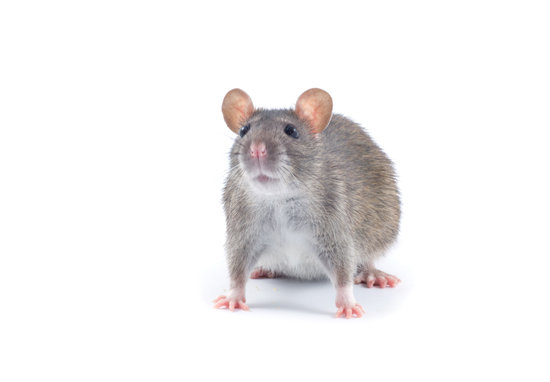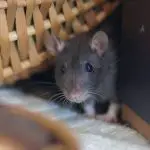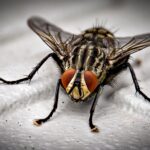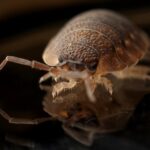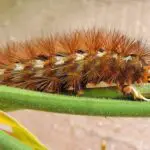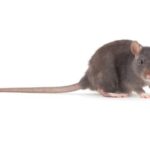How to Get Rid of Mice Without Harming Your Pets?

If you’ve got mice in your home, you might be wondering how to get rid of them without hurting your pets. Thankfully, there are several methods that don’t harm your pets and won’t hurt your home. Some of them include bait stations and Humane mouse traps. Others include Cayenne pepper and Moth balls.
Humane mouse traps
Humane mouse traps are a great way to get rid of mice without harming your pets. They can be used inside or outside your home. They are easy to use and clean. These traps work well and are more effective than poisons. The best part is that they’re also safe for pets and children.
Mice can cause a lot of damage in a home, and they like to nest in soft bedding and storage boxes. Often, they can even nest in stuffed animals. If you want to get rid of mice without hurting your pets, you should avoid feeding them in your home. Mice do not like spicy scents, so a good smell to use is peppermint.
A peanut butter mouse trap is another option to get rid of mice. You can set a peanut butter trap near a cracker or a mouse dropping. If the mouse falls in the trap, you can release it within 24 hours. These traps are made to be humane and won’t hurt your pets.
The Victor Clean-Kill mouse trap is an effective trap. The traps are designed to look like a natural hiding place for mice. They also have specially designed Kill-Gates that kill mice quickly. Because they do not use poisons or chemicals, they’re safe for kids and pets.
While traditional snap traps work well for a small infestation, baited traps can work well for larger populations. The traps can be baited with peanut butter or bacon. The traps need to be placed in an area where mice are most active. Depending on the size of your infestation, you may have to set several of these traps.
Bait stations
Using bait stations to kill mice and rats presents a number of challenges. These include the potential for poisoning other animals, as well as risks to pets and wildlife. Another challenge is secondary poisoning, since rodent poison can be ingested by larger animals. The key is finding a product that will kill mice and rats, but will not harm larger animals.
In order to effectively use bait stations, they must be placed in areas where mice and rats frequently congregate. The best locations are near walls and along their routes. Bait stations should be at least 10 feet from common exterior access points. Bait stations should not be placed in areas where children and pets frequent.
Bait stations are made of durable plastic and are made with a locking mechanism that prevents mice from removing the bait. Bait stations can be installed inside or outdoors. The bait station is made with a double key security system. The cover can be removed for refilling bait or replacing it.
Bait stations are an effective way to get rid of mice without harming pets or children. Bait stations are a great option for small infestations. Because they are not traps, they don’t require any messy cleanup and are a cost-effective alternative to traps. Bait stations can be used year-round, which is a huge benefit if you live in an area where mice are commonly found.
Bait stations are an effective way to get rid of mice and rats without harming your pets. Bait stations use a specialized compound called a rodenticide to kill rodents without harming humans or pets. Bait stations can be used in food establishments as long as they don’t affect humans or pets. They also mimic the environment that mice and rats prefer to live in.
Cayenne pepper
Cayenne pepper has been used for centuries to repel mice and other pests, but it’s not always safe to use around pets. This pepper has an acrid odor and can harm dogs and cats. However, it is safe to use in small amounts. Cayenne pepper is a popular ingredient in bird seed mixes, and can be spread across the lawn to discourage mice and other pests.
Mice have a powerful sense of smell, which makes it hard to deter them with simple scents. Using cayenne pepper, black pepper, or other hot peppers, or vinegar mixed with water, can help. You can also spray these substances onto mice to keep them away.
Another simple way to get rid of mice is by applying cayenne pepper on the mouse’s favorite food. Mice like to eat fruits and vegetables and will often chew on the roots of plants and tubers. However, you should avoid using live mouse traps, as these can harm your pet. Another simple way to keep mice away is to make a homemade mouse repellent spray. Simply mix a small amount of hot sauce with water, and spray around your home.
However, you should be aware of the potential health risks of cayenne pepper. This pepper may burn your soft paws, and may cause damage to the eyes. It’s also not a good idea to sprinkle cayenne pepper on your lawn, as it can be hazardous to humans and animals.
Moth balls
One of the best ways to get rid of mice is by using a mouse repellent. Ammonia contains an intense smell that mice find offensive. You can put some in a plastic bottle cap and place it in the pantry or under the sink. Just be sure to keep the container away from children and pets.
Another way to get rid of mice is by using poison bait traps. Poison bait traps attract mice and kill them. This is a safer option, and can prevent a re-infestation. Mothballs are not safe for pets, and they can harm your pets. Instead, consider other safer methods such as sanitation and baiting.
While mothballs can be purchased at any retail store, they are not recommended for use around children and pets. The chemicals present in mothballs can harm pets and children. If ingested in large quantities, mothballs may cause vomiting and diarrhea. In case of accidental ingestion, seek medical assistance immediately. Also, make sure that you store mothballs in an airtight container.
When using mothballs, make sure to follow the instructions on the packaging. These products may contain ingredients that are not regulated by the EPA. Mothballs should never be used on plants or in poorly ventilated areas. As with any pesticide, they must be properly used to keep pests away.
Another way to get rid of mice without harming pets is by using natural oils that repel mice. Peppermint oil is an excellent mouse repellent. You can spray peppermint oil in areas where mice are likely to invade. Peppermint oil can also be used on corners and shelves where food is stored.
Adopting a cat to deter mice
Adopting a cat to deter the mice in your house may seem like an easy fix, but it’s not always the best solution. Mice can carry a number of diseases, which can infect your cat or even yourself. Mice can also carry parasites, which can lead to expensive vet bills.
Mice are also carriers of a virus called hantavirus, which can infect cats. The virus causes fever, muscle aches, and vomiting. In severe cases, hantavirus can cause kidney failure or even death. If you are dealing with a severe infestation, you may need to consider hiring a professional exterminator to help get rid of the mice.
Although cats may be a great mouse deterrent, you must make sure that your cat has access to the entire house. You should also keep loose food out of reach of your cat. In the long run, this will keep mice away from your home. You should also keep in mind that cats enjoy hunting, so don’t limit your cat to a single room. Your cat may enjoy killing mice because it is part of its natural behavior and you don’t want to deprive it of that activity.
Adopting a cat will help to protect your house against mice. Most cats will chase and kill mice, but you shouldn’t expect them to hunt the entire nest. In addition to this, you should also feed your cat well and provide it with plenty of water. Despite these two important benefits, you should consider using traps if you need to get rid of the mice quickly.
Adopting a cat for mouse deterring may seem like an ideal solution, but it can also make the problem worse. Cats have the ability to catch mice, but it can be difficult to train them to catch them without damaging your home. Positive reinforcement works best when training a cat to catch mice. You can reward your cat with a special treat or toy if it successfully catches a mouse.
